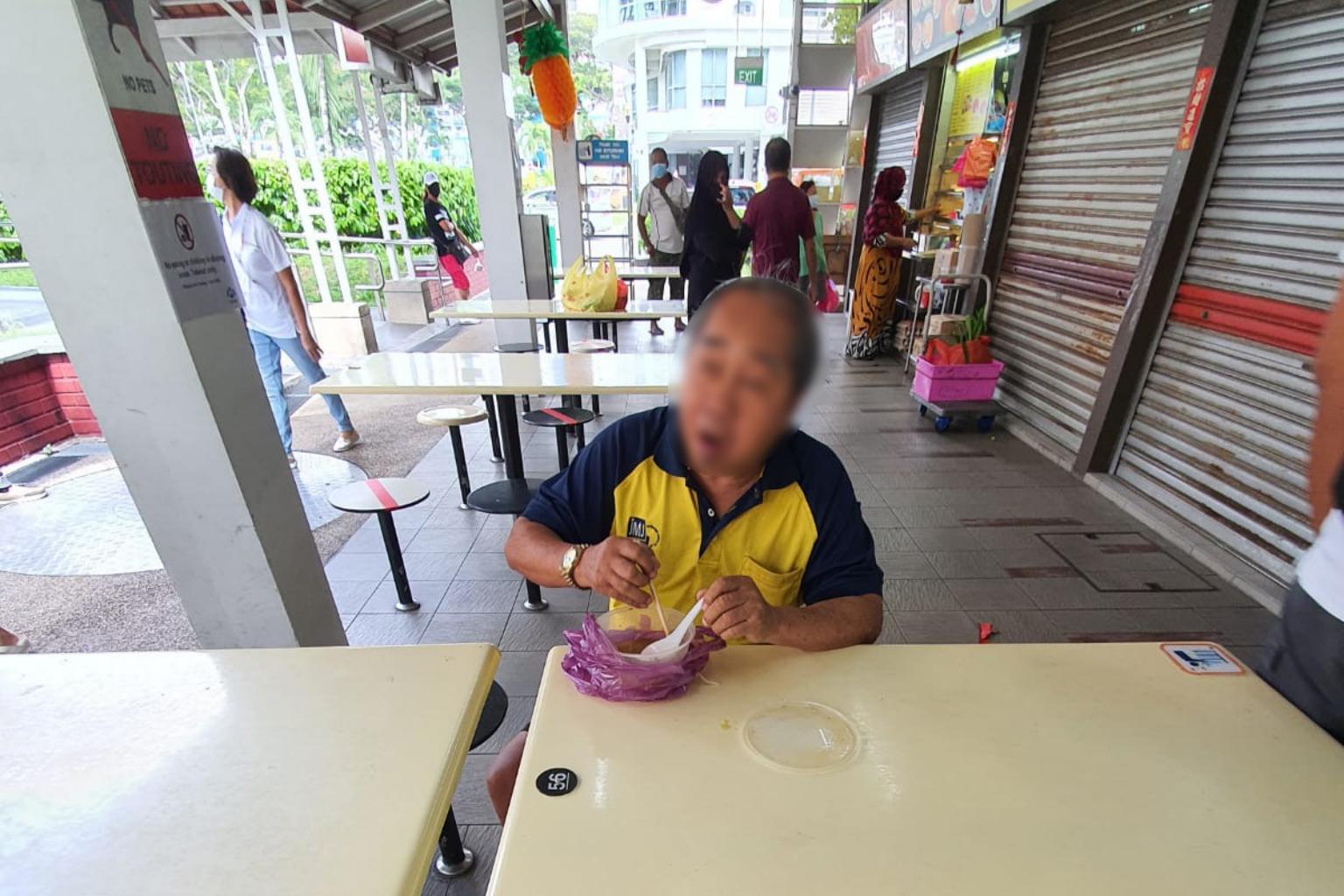Coronavirus: 12 police reports made for verbal, physical abuse of safe distancing enforcement officers
Sign up now: Get ST's newsletters delivered to your inbox

The man who slapped an officer consuming food at a hawker centre in Circuit Road on April 15, 2020.
PHOTO: MEWR
SINGAPORE - Slaps, punches, vulgarities and even a headbutt.
These are among the abuses enforcement officers, as well as SG Clean and safe distancing ambassadors, have endured from people who have refused to comply with safe distancing during the coronavirus outbreak.
The police said they have seen a rise in the number of abuse cases against the 3,000 officers and ambassadors deployed across the island daily to ensure individuals and businesses comply with circuit breaker rules that kicked in from April 7.
The officers are from 50 public agencies, while non-public servants were recruited from the hospitality and aviation sectors and volunteers.
As of Thursday (April 16), the police have received 12 reports of physical or verbal abuse against the enforcement officers and ambassadors, according to a joint statement by the police and the Ministry of the Environment and Water Resources (MEWR) on Friday.
In one case on Wednesday, a 40-year-old man headbutted an enforcement officer who had advised him to stop playing basketball at a cordoned-off Khatib multi-purpose hall.
In another case the same day, a 72-year-old man slapped an officer who had requested for his particulars after observing that he was consuming food at a hawker centre in Circuit Road.
MEWR and the police said they will not tolerate such abuses, and added that investigations against the offenders are being made.
They face a number of penalties if convicted. Using abusive language against a public servant, for example, can lead to a fine of up to $5,000, jail of up to 12 months, or both.
The offence of voluntarily causing hurt to deter a public servant from the discharge of his duty is punishable with jail of up to seven years, a fine, or caning. Using criminal force to deter a public servant from the discharge of his duty is punishable with jail of up to four years, a fine, or both.
The police advised members of the public to bring their identity cards or other forms of official identification with them when they leave home. It is an offence not to furnish one's personal particulars and residential address when asked to do so by an enforcement officer, the police said.
The authorities urged all to take the circuit breaker measures seriously, and to cooperate and comply with the instructions of enforcement officers and ambassadors.
"They are performing an important duty to keep our population safe," said MEWR and the police.


